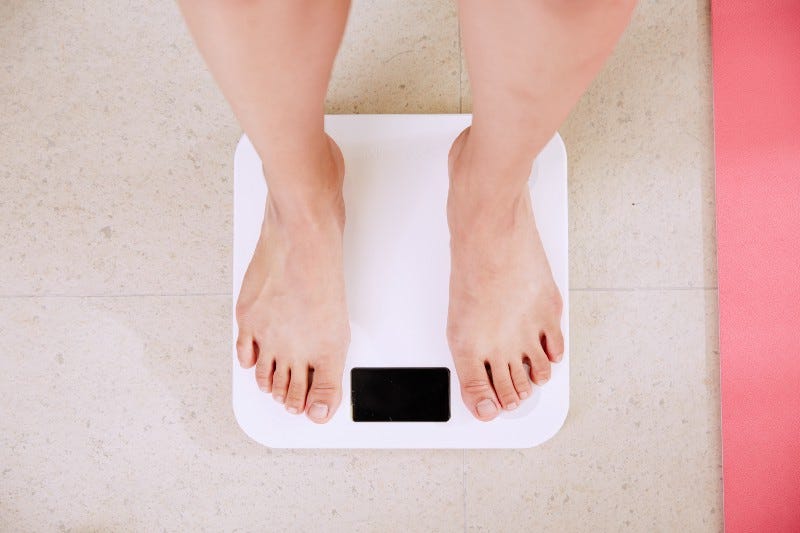
When I first set foot in a gym as a clueless high school kid, I knew absolutely nothing about fitness.
After 4 years of learning and self-experimentation, I have finally arrived at an easy and sustainable fitness lifestyle that can be distilled into 7 simple science-backed things you can do to get and stay fit.
1. The 80–20 Rule
I am a big fan of this simple yet effective idea — eat healthy 80% and indulge yourself 20%. This way you can both eat healthy enough and satisfy your cravings — a win-win situation indeed.
By healthy I mean meals composed of mostly unprocessed foods like grains, meat, eggs, legumes, seafood, nuts, herbs, vegetables, and fruits. Here’s an excellent blog post on healthy eating.

I prefer using this rule on a daily basis where I grab a small tub of delicious ice cream or some sizzling shawarma after 3 or 4 healthy meals.
You can also use this on a weekly basis where you eat clean on the weekdays and go ham on the weekends or on a per-meal basis where each meal is 80% healthy.
2. Stay Active.
Research¹ has shown that Non-Exercise Activity Thermogenesis (NEAT) accounts for 80% of your daily energy expenditure.
NEAT refers to the energy spent in your normal daily activities.
Just staying active throughout the day can help you burn a lot of calories.
I have experienced this first hand — My calorie requirements in college are a lot more than at home, the reason being — I am mostly sedentary at home whereas, in college, I tend to get in a lot of walking without even realizing it thanks to the sheer size of my college campus — around 500 acres to be exact.

Here are a few ways you can increase your NEAT:
Track your daily steps.
Take the stairs instead of the elevator.
If you work a desk job, stand up every now and then to stretch and even take a stroll.
Walk while talking on the phone.
Cycle or walk instead of using a car or motorbike whenever possible.
3. Exercise.
The scientific literature such as this² and this³ has consistently shown that exercise has a multitude of benefits — reduces chronic pain, the risk of heart & chronic diseases, and improves your mood, brain function, sleep quality, memory, hormone functioning, etc.
Exercise doesn’t have to be running a marathon or spending hours in the gym every day. Something that makes you break a sweat and gets your heart rate up will do the job.

You can pick a form of exercise that you enjoy from the endless list of options — Swimming, cycling, yoga, lifting weights, jogging, sprinting, jump rope, brisk walking, soccer, basketball, etc.
My go-to form of exercise is lifting weights in the gym which I really enjoy. Depending on my workout routine, I lift 4–6 days a week with each session lasting around 90 minutes.
When you enjoy exercising, you tend to stay consistent which is super important.
4. Drink Enough Water.
This paper⁴ found that just 2% dehydration can have a debilitating effect on the functioning of the brain.
Further, Empirical evidence and research have shown that dehydration can cause diarrhea, dizziness, seizures, kidney failure, and in extreme cases coma and death.
Instead of freaking out, stay calm and grab a glass of water.

Now you might ask,“How much is enough?”.
This paper⁵ found that the answer varied from individual to individual and depended on a lot of factors — physical activity, rate of urination, climate, etc. to name a few.
So we are doomed not knowing how much water to drink. Or are we?
This paper⁶ found that males on average required 3.7 liters of water while females on average required 2.7 liters of water per day.
So based on things like how physically active you are, how frequently you urinate, and how much you sweat, you might want to aim for either higher or lower than the average recommendations.
I have found my requirement to be between 4 to 4.5 liters per day.
5. Weigh Yourself Every Morning.
This study⁷ found that weighing yourself every day leads to improved weight control behavior.
The reason why this works is — When you weigh yourself, you become aware of your weight which prods you to take action in case of any undesirable weight changes.
I find this super easy to do as well — I just bought a scale, popped it in the washroom, and when I walk into the washroom first thing after waking up each morning, I step on the scale.
6. Sleep.
As someone that has suffered from Insomnia and experienced the debilitating effects of sleep deprivation, sleep is of paramount importance to me.
This study⁸ aptly titled “The Extraordinary Importance of Sleep” explains the dangerous effects of sleep deprivation— affected brain functioning, increase in blood pressure, increased risk of heart diseases, disruption of hormones, weight gain, and even death.

Studies have found that most adults need at least 7 hours while kids need at least 8–9 hours of uninterrupted sleep every night.
I have found my sweet spot to be 8 hours — anything lesser leaves me feeling groggy.
Aim to get 7–9 hours of sleep every single night so that you can wake up recharged the next morning to conquer your day.
7. Consistency.
Consistency is arguably the single most important thing when it comes to achieving your goals in fitness and life in general.
I have experienced better results being consistent with a decent fitness routine than being inconsistent with a really good fitness routine.
Fitness is a lifestyle not a bunch of temporary fixes. Only when you consistently do the aforementioned 6 things can you expect any form of meaningful results.
Enjoy the process of getting & staying fit and the outcome will follow.

References.
[1] Von Loeffelholz C, Birkenfeld A. The Role of Non-exercise Activity Thermogenesis in Human Obesity. [Updated 2018 Apr 9]. In: Feingold KR, Anawalt B, Boyce A, et al., editors. Endotext [Internet]. South Dartmouth (MA): MDText.com, Inc.; 2000-. Available from: https://www.ncbi.nlm.nih.gov/books/NBK279077/
[2] Warburton DE, Nicol CW, Bredin SS. Health benefits of physical activity: the evidence. CMAJ. 2006;174(6):801–809. DOI:10.1503/cmaj.051351
[3] Abou Elmagd, Mohammed. (2016). Benefits, need, and importance of daily exercise. International Journal of Physical Education, Sports, and Health. 22. 22–27.
[4] Ann C. Grandjean & Nicole R. Grandjean (2007) Dehydration and Cognitive Performance, Journal of the American College of Nutrition, 26:sup5, 549S-554S, DOI: 10.1080/07315724.2007.10719657
[5] Armstrong LE, Johnson EC. Water Intake, Water Balance, and the Elusive Daily Water Requirement. Nutrients. 2018;10(12):1928. Published 2018 Dec 5. doi:10.3390/nu10121928
[6] Institute of Medicine. 2005. Dietary Reference Intakes for Water, Potassium, Sodium, Chloride, and Sulfate. Washington, DC: The National Academies Press. https://doi.org/10.17226/10925.
[7] Steinberg DM, Bennett GG, Askew S, Tate DF. Weighing everyday matters: daily weighing improves weight loss and the adoption of weight control behaviors. J Acad Nutr Diet. 2015;115(4):511–518. DOI:10.1016/j.jand.2014.12.011
[8] Worley SL. The Extraordinary Importance of Sleep: The Detrimental Effects of Inadequate Sleep on Health and Public Safety Drive an Explosion of Sleep Research. P T. 2018;43(12):758–763.




